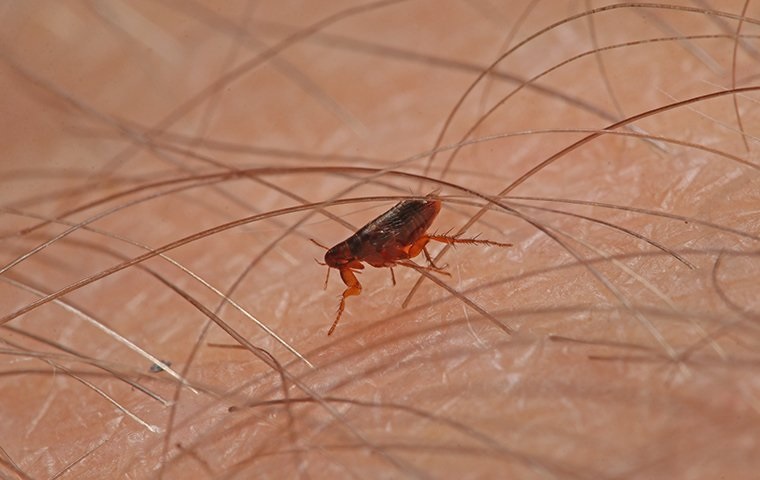What Do Fleas Look Like: Identification and Common Hiding Spots

Fleas cause problems for both your house and your pets. You can handle them better if you know where they hide and how they look. This article will define fleas, and “What do fleas look like” (Puainta®) highlight the significance of flea detection, and outline their typical habitat.
The Physical Characteristics of Fleas
Before we discuss the importance of identifying fleas, let’s start with their physical characteristics. Fleas are small, measuring about 1-2 millimeters in length, and are reddish-brown. Their flattened body structure allows them to easily move through fur, and their powerful hind legs enable impressive jumping. With short antennae and specialized mouthparts for blood-feeding, they are quite distinctive.
Why Identifying Fleas Matters
Understanding what fleas look like is not merely a fascinating fact; it’s the key to effective flea control. Fleas can cause discomfort and health concerns in both pets and humans, making early identification essential.
Recognizing Fleas on Pets
One of the first steps in dealing with fleas is checking your pets. Common hiding spots for fleas on pets include areas near the base of the tail, behind the ears, and around the neck. Using a flea comb can help you spot these tiny intruders.
Common Hiding Spots for Fleas
Fleas are not limited to your pets; they can also infest your living environment. Common indoor hiding spots include carpets, bedding, and upholstery, while outdoor areas like gardens and yards can harbor fleas too. Understanding where they hide is crucial for effective flea control.
Signs of Flea Bites
Flea bites often manifest as small, red, itchy bumps on the skin. In pets, you might notice excessive scratching, chewing, or hair loss in specific areas. Recognizing these signs is an essential part of flea identification.
Prevention and Treatment
Preventing fleas is the best course of action. Regular pet grooming, including brushing and bathing, can help you spot fleas early. A clean living environment, including frequent vacuuming and washing pet bedding, can also deter fleas.
If you do identify a flea infestation, several treatment options are available, ranging from commercial products to natural remedies. For severe infestations, consulting your veterinarian is recommended to determine the best treatment for your pets.
Conclusion
what do fleas look like Understanding, their hiding spots is a fundamental aspect of flea prevention and treatment. By recognizing their physical characteristics, identifying common hiding spots, and taking proactive measures, you can keep your home and pets flea-free. Don’t let these tiny pests take over—arm yourself with knowledge and take control of the situation.

